

Slide 2: Common Myths of Voting and Elections 1
“But my vote doesn’t actually matter”
The truth is, your vote does matter. With so many elections falling close together with few votes setting the elects apart, sometimes it will come down to that vote that you didn’t think mattered. For example, in 2017, Virginia drew a name out of a literal hat because the ballot was so close. This was to determine who would run the state’s House of Delegates. Each vote does matter, yours could be the deciding factor. Think about this, the election for mayor is neck and neck until the final vote, your vote, is accounted for and you now have a mayor that you personally elected thanks to your participation.
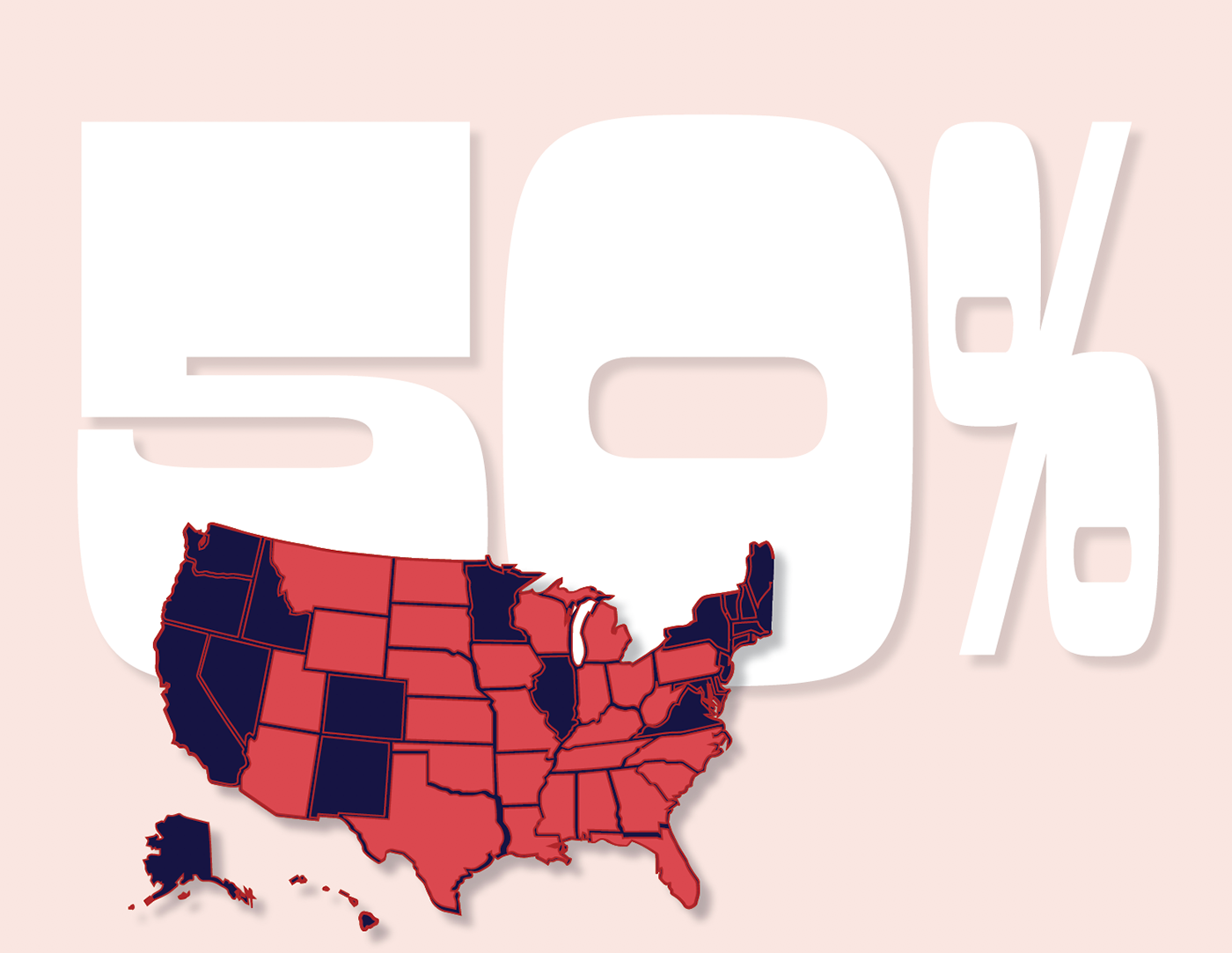
Slide 3: 50% of all eligible voters are 18-34,
this means that your vote, a young vote, actually matters. With less and less people voting over the years it actually makes an impact if you decide to vote. Don’t you want to be an innovator going against the tide of everyone else? That’s a true hipster.

Slide 4: TAKE PART IN SOMETHING BIGGER THAN YOU.
For the first time ever, you are encouraged to be a part of something bigger than any high school drama could even compare to. Taking part in any election, much less the presidential election, is a great opportunity to directly impact surroundings. Doing your part in an election is cool because you can actively say that you helped make the decision to make your future lives better. Don’t you want to feel empowered for changing the world, this can be the first step on doing something great for your life and others.
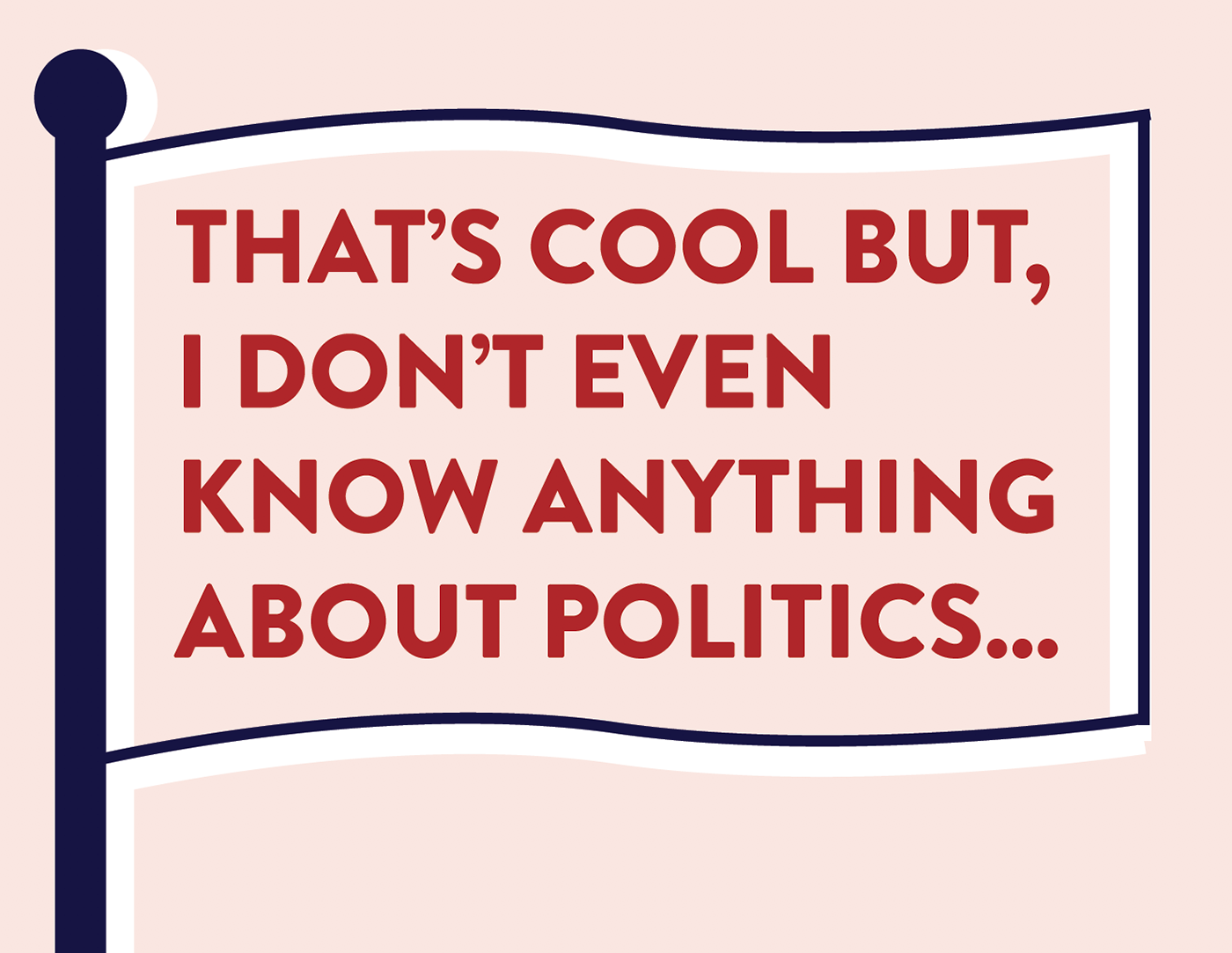
Slide 5: It’s easier than ever to be an educated voter.
Thanks to the internet, there is no excuse to not vote because you don’t know enough about policies, candidates, or political parties. In fact, one might find it harder to escape day-to-day political news than subscribe to it. “In an era in which Twitter is preferred means of communication for the President of the United States, Instagram, YouTube, and Snapchat have become as crucial as the candidates' own websites for disseminating information about relevant issues. As this type of civic education in everything is typical for most Americans today, it isn't just beneficial in the months leading up the election but also on a day-to-day basis. The current online climate allows young voters to form a fuller picture of the candidates and their platforms in a medium they're familiar with.”-TheBestColleges.com

Slide 6: JOHN GREEN IS YOUR BEST FRIEND.
The internet has everything you need to find out anything you need about anything, well most things. But in a glorious place like CRASHCOURSE you will find quick, relatable, and easy to understand information about politics. John Green is your best friend, he will let you know everything you need to know about what the election is, means, and why voting matters. All you have to do is look for it.

Slide 7: Who are these people?
Considered cool by teenagers, these are some of the most influential people on the internet today with a combined following of about 400 million people on Instagram alone.

Slide 8: What do they have in common?
These people are all viral voters, open about their opinions and how important it is to have a voice for yourself especially at uncertain times. Want things to go back to normal? You can literally have a say in what that will look like in the future, don’t sit back and watch things happen unless you want others to choose for you. These celebrities have a soap box and choose to speak on whatever the believe in and they, as well as many more, have found great importance in voting because it is a direct right of the American people. The cool thing about this is, the vote your favorite celebrity has is worth the exact amount as yours.
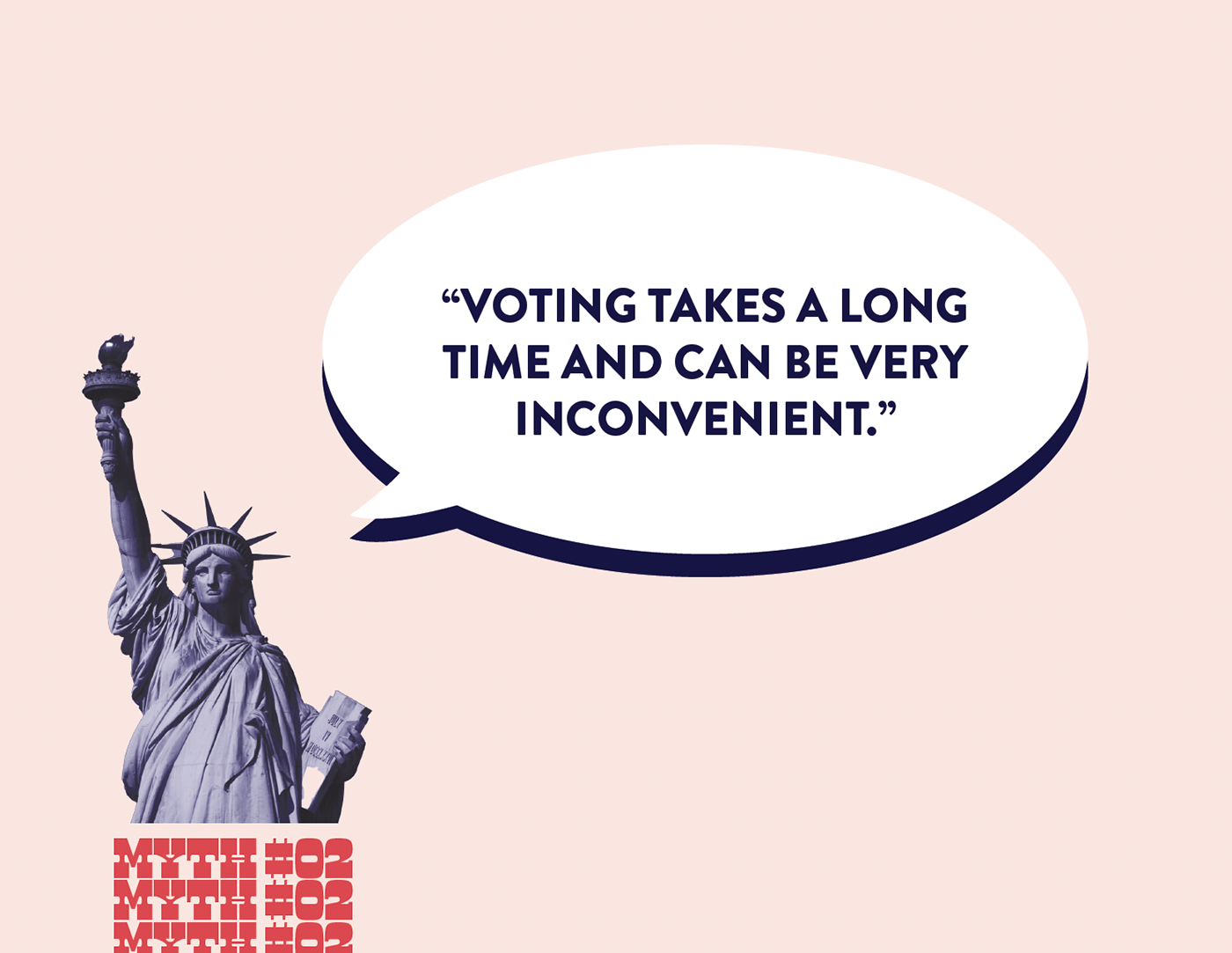
Slide 9: Common Myths of Voting and Elections 2
Voting takes a long time and can be very inconvenient.

Slide 10: What are you doing with your time?
Each day 18-24 year olds spend more than 7 hours online.
29% of 15-24 year olds use TikTok daily
31% use Instagram regularly
38% use Twitter regularly
Yet 25% of the 20 million eligible voters making up the Millennials are the ones who vote.
So, you’re telling me that more people are more interested in what Becky wore to Disneyland than what legislation has ruled for speaking rights. Without voting, you could literally not continue any of these leisurely activities without a draw back. The truth is that, yes, teenagers do want to spend their entire day online instead of spending a short amount of time deciding a future.

Slide 11:
To put meaning behind this timeline, I want you to envision the following scenario.
In 7 Hours, you could run an average marathon time, catch the latest episode of “The Office”, go get a smoothie from Nekter, and still make it home in time before the 7 hours are up.
Voting can take 10-30 minutes. Imagine taking off an hour of Instagram scrolling to go take part in the greatest decision you can ever make, choosing your future. Voting is more different now than ever before because it can actually be convenient, you do not even have to leave your home to vote if you wanted. Don’t make voting seem like a chore, make it seem like an opportunity to show your friends and family that you actually care about quality of life for yourself and other Americans.
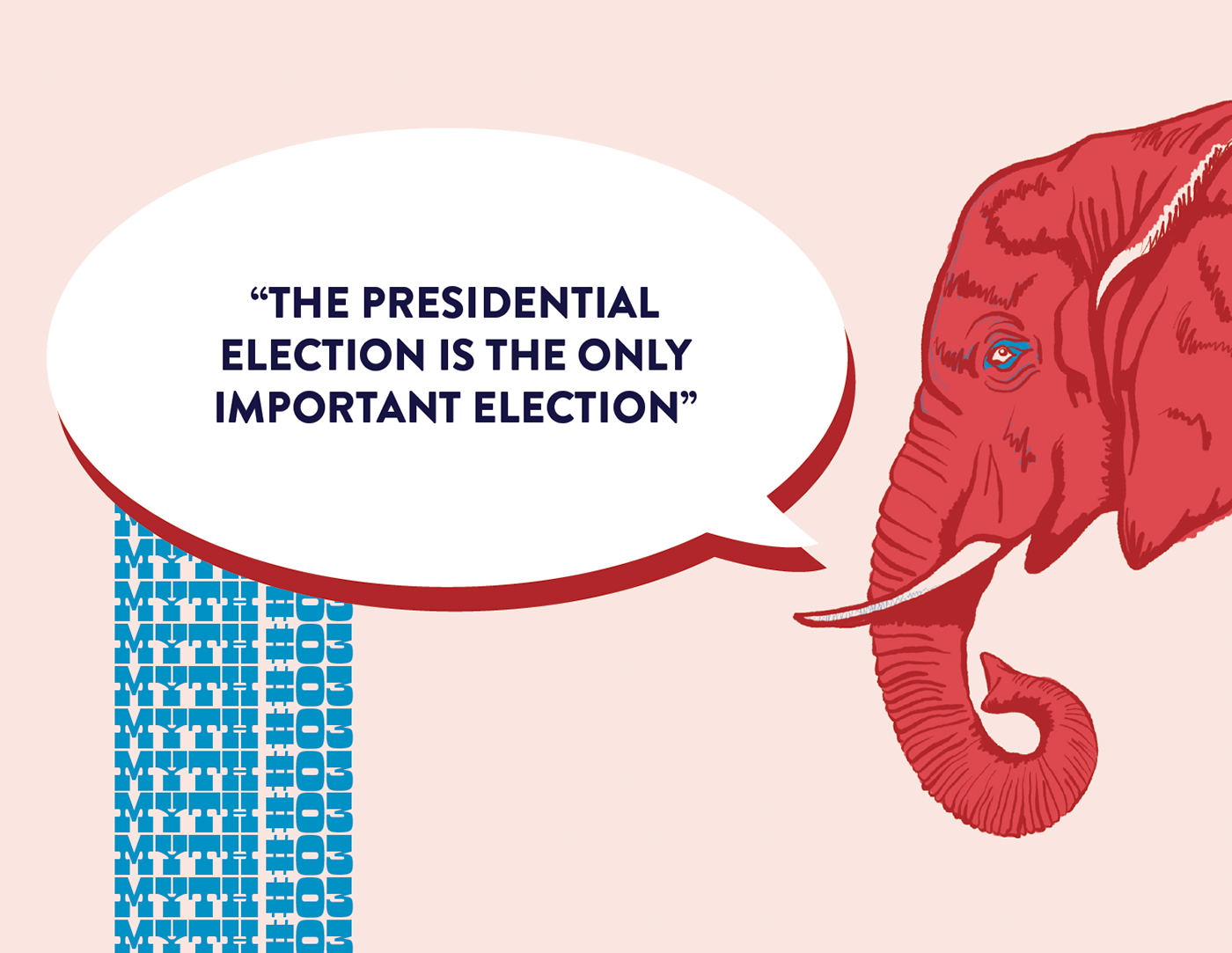
Slide 12: Common Myths of Voting and Elections 3
“The presidential election is the only important election”
Where does water your come from? How are local police officers trained? State and local elections decides who answers these questions and more. With unsettling times in police brutality and civil rights coming to light, consider the direct voice you can share to make a difference in your community. It is important to weigh the surroundings of your home and community and how you can choose to better it. In a way, it will always be up to you by voting.

Slide 13: Why should I care now, I’m not even old enough to vote yet?
The thing is, even though you have to wait a little while until you can vote. It doesn’t mean you won’t be involved. Here are a few ways you can take action now, as a high-school teen.

Slide 14: Engage and discuss current events.
With all the information you learn from John Green’s CrashCourse and other resources, you can finally have conversations with peers about what they think. By watching local news and regularly broadcastings unbiased news sources it can be exciting to actually understand what is being talked about. Also, during the election you can have viewing parties; not every family has access to local and national debates.

Slide 15: Engage in service learning.
Many high schoolers seek opportunities for their first job and what could be more fun than personally working in the democratic process. Before you turn 18, you can volunteer for voter registration in your community. This can educate and give an inside look on the election process. Teens may also work as poll workers, 41 states allow this while most community sites are nearby schools; thus, convenience.

Slide 16: You can practice voting.
You can create mock elections with peers or classmates. Sometimes by talking with a Social Studies/ Government teacher about an inclusive mock election can be a fun way to experiment with your peers on political views. When I was in high school we had a mock election with the entire school during the 2016 presidential election; however, this example can definitely be condensed to within a household or friend groups.

Slide 17: Common Myths of Voting and Elections 4
“I can’t talk about political issues or encourage my friends to vote anyways”
SO UNTRUE! Everyone is entitled to their own opinion and some are more vocal than others, which can definitely be daunting. Going to a friend and asking about their political views can seem like a road straight to controversy; however, having a conversation about how someone believes in things can be a much lighter route. By taking time to talk to your friends about politics you are actually gaining more insight on your relationship with them and you can finally have an opportunity to grow together. Plus, what a cool bonding experience to go vote together and take a cute picture with your “just voted” stickers afterwards.
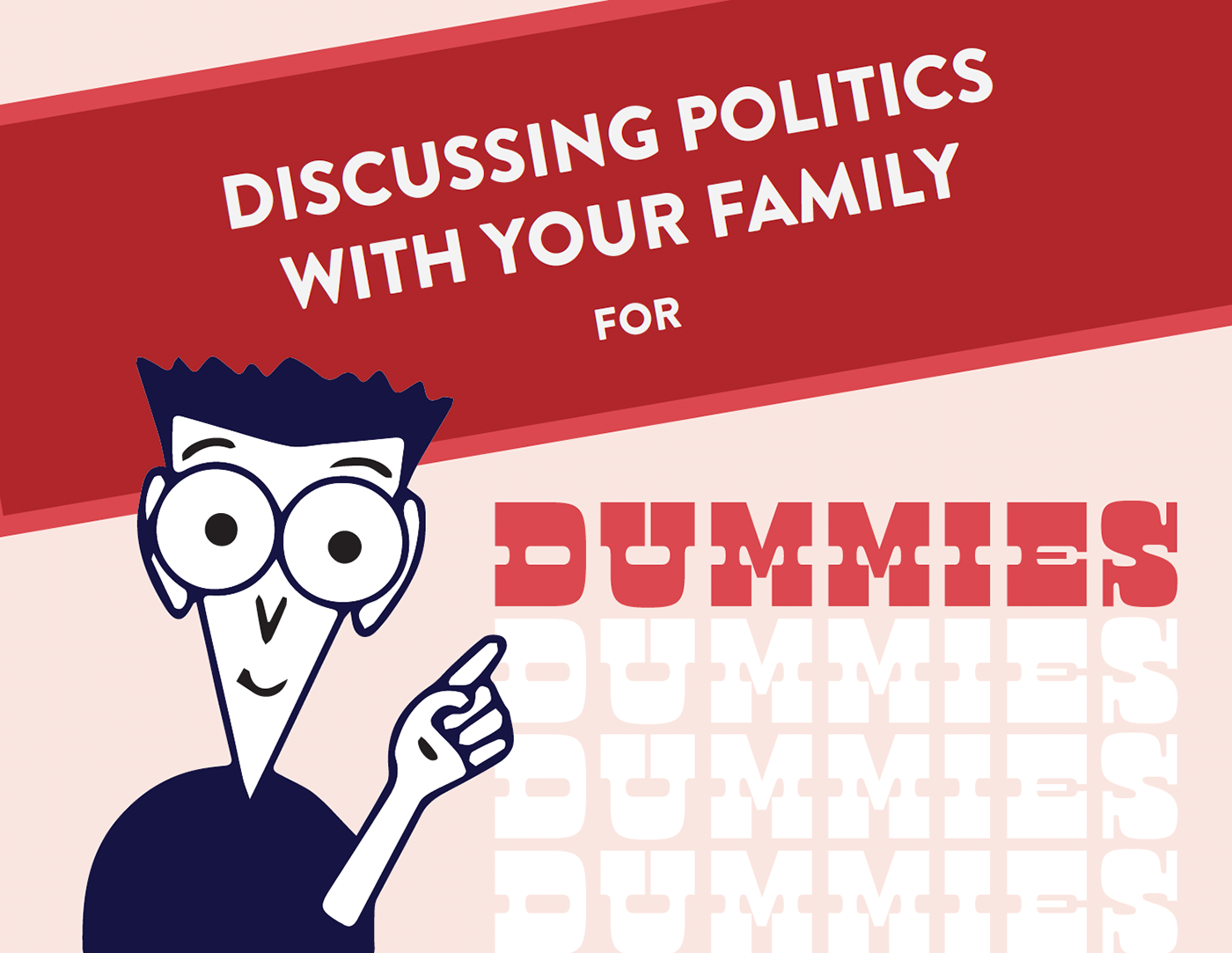
Slide 18: Discussing Politics with your Family: For Dummies
Many people struggle at the fact of talking with family members about politics and other controversial material. Most avoid the conversation all together. The advantage of you talking to your parents and family members about politics now is that you can gauge a better point of view moving forward in your own personal growth. Speaking with others and trying to understand their side of things is a good way to grow yourself and know why you are making decisions based on your beliefs. This can also make you feel like more of a peer by holding intellectual conversations rather than feeling like you’re the teenager you truly are.
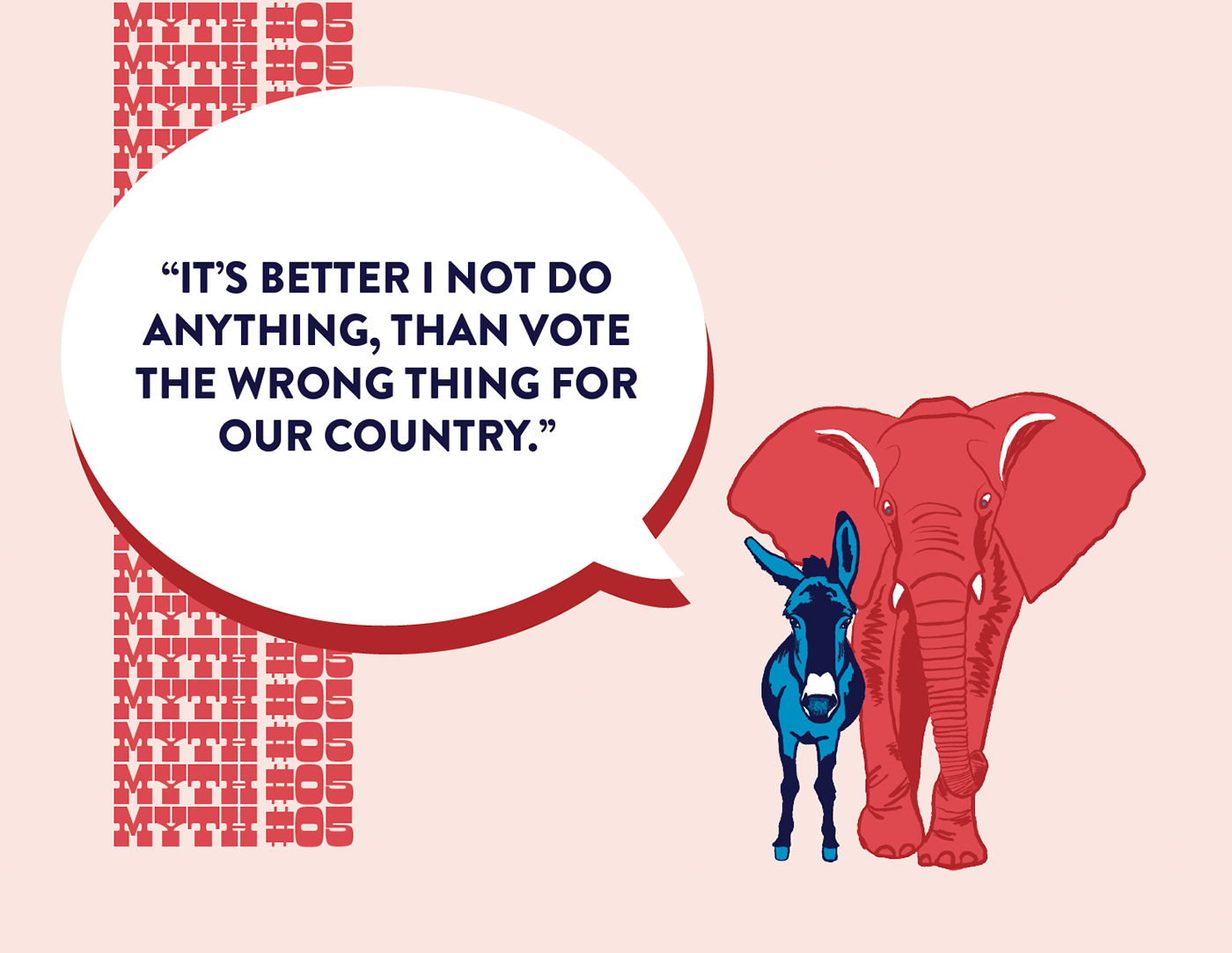
Slide 19: Common Myths of Voting and Elections 5
“IT’S BETTER I NOT DO ANYTHING, THAN VOTE THE WRONG THING FOR OUR COUNTRY.”
Saying nothing, doing nothing is part of the problem. It’s always good to vote your voice when you can. Be a part of the change.

Slide 20: REFUSING TO VOTE IS NOT REBELLION, IT IS SURRENDER.
Some believe that by not participating they are refusing the power of government; however, the reality is that by not participation you are choosing to accept the rights and livelihood that is chosen for you. It is hard to sympathize with those who speak out when they believe life is unfair, when the opportunity presented itself to prevent the stakes originally. It is important to understand that by standing back and watching, you’re hurting yourself more.


